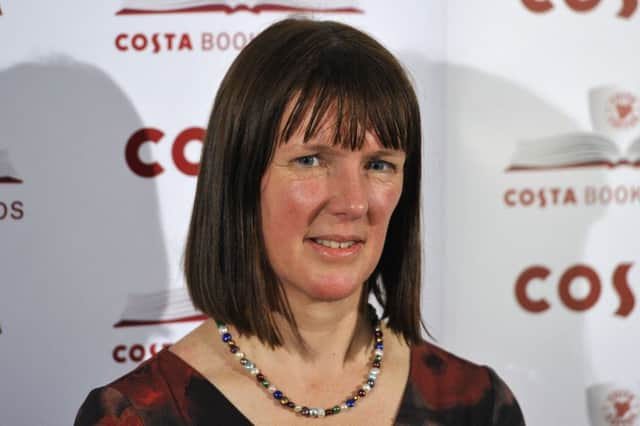Book review: The Bonniest Companie by Kathleen Jamie


The Bonniest Companie by Kathleen Jamie | Picador, £9.99
IN HER poetry written in the previous century, Kathleen Jamie was openly engaged with Scottish cultural politics – her Selected Poems 1980-1994 was even entitled Mr And Mrs Scotland Are Dead. Her next collections, The Tree House in 2004 and The Overhaul in 2013, as well as her two very fine books of non-fiction, Findings and Sightlines, seemed to indicate a move from the political to the natural.
And yet I’ve never quite bought that interpretation – how can writing about land, environment, ecology and the body not be political? – and her new collection, The Bonniest Companie, seems to prove the point. The collection does not include the poem “Here Lies Our Land”, which was inscribed in the refurbished rotunda at Bannockburn, but the sentiment and strategies of that work are echoed throughout this book. Jamie describes a country “belonging to none but itself” and contrasts the geological permanence with our humanity’s “mere transients”, while nonetheless extolling the beauties of the transient, its “westlin’ winds and fernie braes / Northern lights and siller tides”. It ends “You win me, who take me most to heart”, which can be read politically and can be read metaphysically. It is a generous poem, even when it is slyly combative.
Advertisement
Hide AdThe Bonniest Companie grew out of a desire to write a poem a week throughout 2014 (in fact it contains 47 poems). It is a breathtakingly beautiful and assured work: my notes on one poem – “Corporation Road II” – just read “instant classic”. It is political in the broadest and grandest sense. Its most self-consciously “relevant” poem is the post-referendum “23/9/14”, a picture of a dismal, leaf-strewn autumn ending “ – and so on and etcetera. / We ken a’ that. It’s Tuesday. On wir feet. / Today we begin again”, although there is a very plangent poem wryly entitled “Wings Over Scotland” – not about the pro-nationalist website but about the recorded deaths of birds of prey.
Politics is woven throughout. In “Eyrie II”, about the gales and a lost nest, which characteristically veers between the gloriously insightful (“street-lamps sift their small light down”) and a haunting piece of nursery rhyme (“down falls cradle and all”), Jamie ends with a phrase in italics. “Build it up, sticks and twigs – / big a new ane”. The use of Scots is clearly political, but it brilliantly dallies between the English reading – big as size – and the Scots – big as build. It is a clever wink as well at MacDiarmid’s famous poem “Scotland Small?”
Jamie reads like the combination of two very different 19th century poets – Emily Dickinson and Gerard Manley Hopkins. She is Dickinson-esque in her askance shrewdness. Her opening poem “The Shrew” ends with the creature “caught mid-thought, mid-dash”. It’s a line with two dashes anyway (and the dash was Dickinson’s favourite piece of punctuation). She is like Manley Hopkins in her sense of the otherness and possible sanctity of nature. “Merle”, the third poem, describes a blackbird that “doesn’t know he’s born / doesn’t know he’s praise and part / of this Sabbath forenoon / north Atlantic style”. Jamie clearly doesn’t have Manley Hopkins’ faith, wavering and tormented as it was, but she thrills similarly to the natural world, and finds a kind of secular transcendence in it. When she writes, in “The Cliff” of a desire to “let space open / between word and world / wind-strummed, trembling” she sounds precisely like Manley Hopkins and Dickinson at the same time.
Scots is deployed with very clever nuance. “World Tree”, one of the stand-out pieces, begins with a meditation on an old tree which was “stationed / like a beggar at the bottom of our lane” (and again, ideas about poverty and privilege recur sotto voce throughout). But the conclusion is astonishing. One might have expected “Crone-tree, tribal-root, / I haven’t thought of you in years, your sap / in me” from Jamie, given her interest in gender politics and the shiftiness of identity. But it continues – “but wonder know what kind you were / – elder or hawthorn, bour or may”, which is smart, since bour is Scots for elder, and may is Scots for hawthorn. If a thing has a different name, is it a different thing?
Yet the knockout punch is the final line: “ – and why I suddenly care”. There is a hint of Larkin in that ultimate self-questioning – I was reminded of his “Reasons For Attendance” – but it also strikes a note Jamie has made her own. All her interactions with the natural are sieved through a profound scepticism.
She knows that the meanings she puts on nature are impositions. There may be “mystery in my own back green / – especially in my own back green!” but nature’s response, eloquently echoed in “The Glen” is always “it’s nothing to us”.